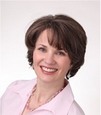As I did around this time last year, I just saw a Disney-Pixar film that offers some great organizing lessons. This year it was Toy Story 3 that lured me from the comfort of my couch. The premise of the story is that Andy, who we met as a young boy in the first movie of the series, is getting ready to go to college and must decide what to do with his toys. This story tugged at my heart not only because I have son named Andy who's in college, but also because I see many of my clients face the same struggles as Andy while they move towards creating a new, better life for themselves. I'd love to hear your thoughts on my observations.
The oldies but goodies are goodies for a reason. Andy had a large number of toys that he had enjoyed throughout his childhood - he didn't seem to be constantly bringing in new toys. What oldies but goodies do you own? While they may not give you the thrill of being new or offer the excitement of finding bargain, there's probably a good reason that you prefer these things. Whether it's a pair of pants that fit you just right, a paring knife that makes life in the kitchen easier, or a piece of artwork you enjoy pondering, many things in our life are hard to replace - so stop trying. Don't make impulse purchases, or even conscious purchases, if you already have something that suits your needs - you'll end up having less clutter.
It may be easier than you think to let go of things you don't need. Molly, Andy's sister, had a bedroom filled with things that were no longer meaningful to her. Until her mom prompted her, she hadn't taken the time to pare them down. Once she got started, however, Molly had an easy time letting go of a lot of things she didn't want or need. Her mom's encouragement gave her the motivation she needed to move things to the donate bin or even the trash, so she could surround herself with things that were meaningful to her now. Is there someone who can encourage or help you let go of the things that no longer make your life fulfilling? If you're a parent, can you help your kids learn to set limits by helping them evaluate their belongings?
Your possessions may not align with where you are in life. Andy (and his mom) recognized that he was entering a new phase of his life and his toys no longer played a part in that life. Like sending kids off to college, there comes a time when we should release our belongings to live the next phase of their lives and move us along to our next phase. Sometimes it's hard to face the reality that we're getting older or that our life isn't what it once was or what we'd dreamed it would be. We might regret that our career is less stellar than we'd hoped, that that we no longer have time for the hobbies we once enjoyed, that our relationships have changed, etc. Are you hanging onto things because you're afraid that if you let them go you'll be giving up on your dreams? Consider how letting them go might give you the physical and metal space to create a new life in alignment with the person you are now.
Others can benefit from your castoffs. Andy donated his toys to someone else so they could provide her with the joy they once had given him. Rather than remaining locked away and forgotten in his toy box, they were able to continue being useful once they left Andy's house. Are you hanging onto things solely because they're still usable or because they cost you money? Their usefulness or monetary value isn't going to be recovered simply by you hanging on to them. Consider extending their meaningful life by donating them to someone whose life can be improved by having them.
Internationally known professional organizer, author, and speaker Sue Becker is the founder and owner of From Piles to Smiles®. She enjoys helping people from around the world live better lives by creating customized systems to overcome their overwhelming paperwork, clutter, and schedules. She specializes in helping people who are chronically disorganized - those for whom disorganization has been a lifelong struggle that negatively impacts every aspect of their life, especially people with AD/HD. Her hands-on help, as well as her presentations, have helped thousands of individuals create substantial change in their lives.
Sue is Illinois’ first Certified Professional Organizer in Chronic Disorganization. She co-authored the book Conversations on Success, and has appeared as an organizational expert on NBC News and the national TV show, Starting Over. A CPA, Sue has an MBA from Northwestern University’s Kellogg Graduate School of Management.

Post new comment
Please Register or Login to post new comment.